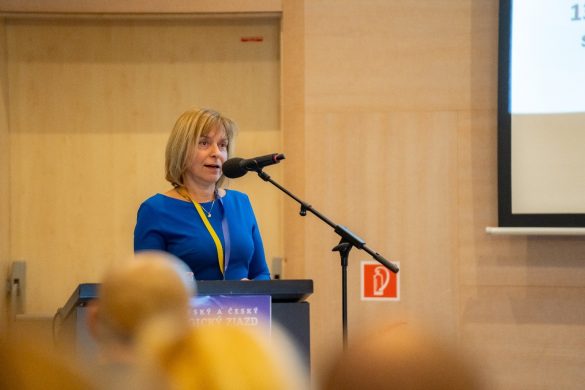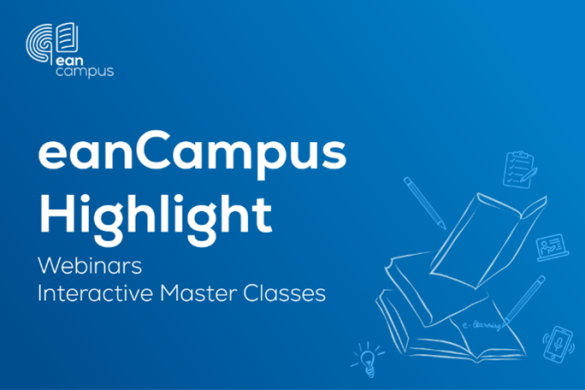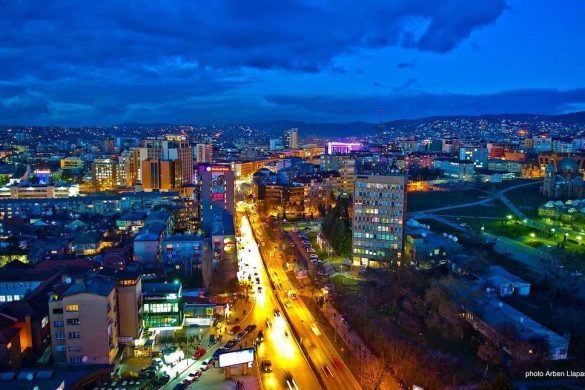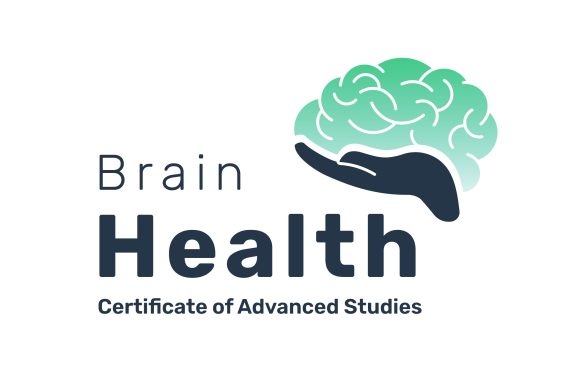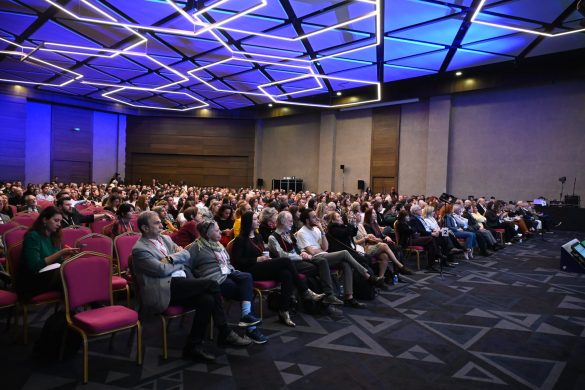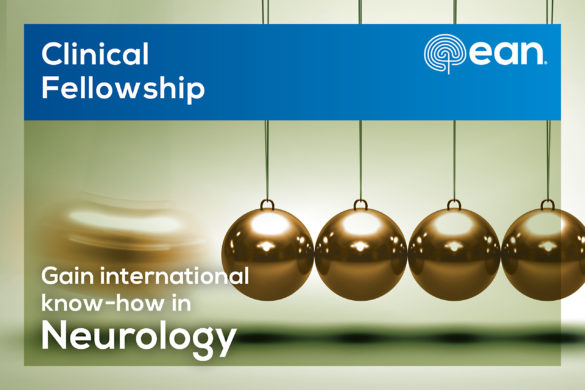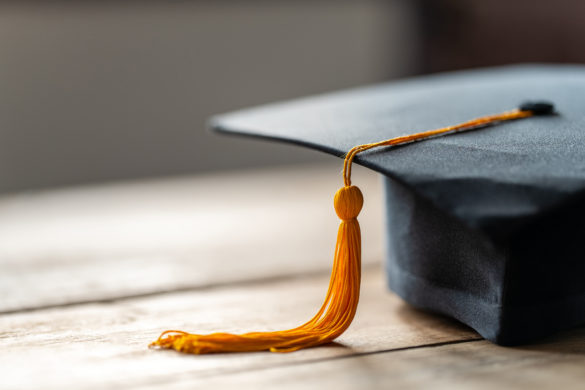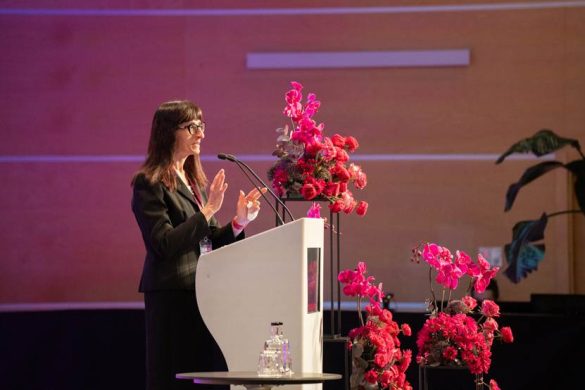Report from Floriana Boghez from Romania visiting the Sleep Center, Civic Hospital in Lugano, Switzerland under the supervision of Dr Mauro Manconi
I spent six very useful weeks in the Neurology and Neurophysiology Department of the Civic Hospital in Lugano, precisely in their Sleep Center. The medical doctors and the technicians were very nice and gave me useful advice every day about the patients and their sleep recordings. My daily activity was based on:
- scoring polysomnographic recordings (of patients with neurological sleep problems or diseases: restless leg syndrom, periodic limb movements during sleep disorder, Parkinson disease with REM sleep behavior, central and obstructiv sleep apnea, NREM and REM parasomnias, nocturnal epilepsy) and reviewing them with a senior doctor
- studying the meaning of actigraphy in sleep diseases and the way is done and interpretated
- interpretation of nocturnal EEG’s in epileptic patients with focal and generalised form of this disease
- taking part of the interview with the patients with sleep disorders
- applying different sleep scales on patients (Epworth, Pittsburgh, Berlin, Standfordt)
- finding out the right steps in different diagnosis between parasomnia and nocturnal epilepsy (a subject I am very interested in because in our sleep lab in Bucharest we have many such patients)
- a small study (12 patients) about neck myoclonus in which we try to define better this physiological or pathological motor events during sleep (predominnatly in REM sleep but not always)
- a clinical presentation of a patient with oneiric stupor and Creutzfeld-Jakob disease.
I want to thank again the EAN committee who offered me this wonderful opportunity to learn more about sleep medicine in neurology practice.
****************************************
Report from Albert Acewicz from Poland visiting the Department of Neurology at the University Hospital Schleswig Holstein in Kiel, Germany under the supervision of Professor Günther Deuschl
In May and June 2015, I had the opportunity to stay at the Department of Neurology, Universitätsklinikum Schleswig Holstein in Kiel for 6 weeks within the EFNS “Department to Department Co-operation” programme. I had a great chance to increase my neurological knowledge, broaden my clinical interests, participate in scientific research and meet inspiring people.
I’ve chosen Kiel as my hosting department due to my neurological interests in movement disorders. The Department of Neurology in Kiel directed by Professor Günther Deuschl is known for the highest quality care and research on movement disorders as well as deep brain stimulation (DBS). Therefore, during my stay I had the opportunity to acquire knowledge from the best specialists in this field. I learnt a lot about qualification to DBS implantation, postoperative and long-term care of patients with DBS, neurophysiological and clinical examination during operations, diagnosis and treatment of movement disorders, botox treatment and a lot more. Due to my little experience in working in the ambulance, I was especially focused on the treatment of patients in out-patient conditions. I saw and discussed a lot of interesting cases, participated in botox injections and stimulation programming. My German isn’t perfect, but between the patients we had time to discuss in detail their complaints, problems, possible causes and solutions. Furthermore I had the opportunity to see how the general ward, stroke ward and emergency works. The equipment, procedures and the quality of patient’s care used in Kiel are impressive.
The second goal of my visit was to find out how scientific work is performed in Kiel. I had the possibility to see how different workshops work, what are current and future scientific plans. They told me a lot about methods and results. Furthermore I had a chance to write a manuscript together, which may be the starting point for our future cooperation.
I would like to thank my supervisors, Professor Witt and Dr Zorenkov, for their knowledge, assistance and help. My special gratitude is to Dr Zorenkow, who showed me all parts of the neurology department, introduced me to all doctors and helped with all my problems. However, it is worth emphasising that the whole staff of the department was very friendly, welcoming and made me feel as a long-standing member of their team.
I lived in a beautifully located University Guest House, surrounded by trees and close to the water. I paid 655 Euro for 6 weeks of my stay. I used a borrowed bike to get to the hospital, the way everybody does in Kiel. In my free time I had the opportunity to explore beautiful surroundings, made a trip to Lubeck and Hamburg and met with people from my Guest House and Department.
My visit in Kiel within the EFNS “Department to Department Co-operation” programme was very worthwhile and beneficial experience even though not long enough. The knowledge I gained in the Kiel will be certainly very useful in my future practice. I would recommend the EAN Department-to-Department programme to any of my colleagues.
****************************************
Report from Evgeny M. Smirnov from Russia visiting the Tel Aviv Sourasky Medical Center, Ichilov Hospital in Tel Aviv, Israel under the supervision of Professor Natan Bornstein
Dear Organisers of the Programme,
I herewith send you the report of my impressions and work at the Tel Aviv Sourasky Medical Center (Ichilov Hospital) during my four weeks stay.
In spite of the fact that Ichilov Hospital is considered a usual city hospital, it is also a Clinical Hospital (to the Russian measures): It consists of a research part and is a multi-profile hospital. Also it has a big closed territory with check point, campus, and mall. The atmosphere of friendliness, mutual aid and collective nature reigns in this hospital. The Chair of Neurology actively participates in the work of the clinic.
The main purpose of my educational visit was to look at the features of organisation of neurological help to the patients in other country. Only evidence based medicine is used in Israel. For example: neuroprotective drugs, which are widely spread in Russian hospitals are not used in Israel, because of their low level of validity. This tactic of organising Health Care is very effective. In the analysis of National Acute Stroke Israeli Survey (2003-2013) the decreasing of mortality, infectional complications of the stroke and increasing in quantity of outcomes with slight and moderate disability was shown.
During my educational visit, I saw that all neurological services of the Ichilov Hospital are divided into different units, which provide specific medical help to each group of patients: with stroke, movement disorders, epilepsy and paroxysmal states, multiple sclerosis, amyotrophic lateral sclerosis and other (in comparison in Russia neurologist have to work with all pathologies of the nervous system). During my practice, I had the opportunity to work with all these nosology.
The variety of diagnostic and treatment methods which are used in Israel are the same in Russia. But high technology is used more widely: MRI, genetic, enzyme analysis, searching for specific proteins (for different degenerative diseases)…
The patients are the same as in Russia. But in Israel it is accepted to take care of your own health. People spend a lot of time with sports. They know the results of their analyses and the drugs they take; the compliance to the treatment is also high.
During my stay in clinic I got acquainted with all aspects of work of neurologic service:
- Stroke: I took part in physical examining the patients, analysis CT/MRI scans. I performed a transcranial Doppler with bubbles-test to verify the high risk of paradoxal cerebral embolism though foramen oval. I corrected my tactic of prescribing antiplatelet and anticoagulant drugs to the patients with stroke. I accompanied the patients’ stay from the admitting office to the intensive care unit. The systemic trombolytic therapy begins in the admitting office, which reduces the “door-to-needle” time. Also the quantity of the patients is corresponding to the quantity of the medical personal, which is necessary to provide the adequate medical care.
- Amyotrophic lateral sclerosis (ALS): For the first time I saw the combination of ALS with cognitive deficits as the form of ALS. Also I improved my algorithm of early clinical diagnosis of ALS.
- Multiply sclerosis (MS): I took part in examining patients with MS and discussed pros and cons of the prescribing of citostatics in the cases of primary and secondary progressive MS. Also I looked at the role of the evoked potentials in the early diagnostic of the MS.
- Parkinson’s disease: I had an acquaintance with the technology of electrostimulation of basal ganglions. Also I saw the using of Apomorfin as a variant of overcoming of inefficiency of L-DOPA-therapy. I improved my algorithms of therapy of the complications Parkinson’s disease on-off-phenomenon (the decreasing of the L-DOPA dose and increasing of the frequency of taking medicine; in such cases in Russia L-DOPA therapy is often canceled). I saw the effect of the botox therapy in patients with Parkinson’s disease, muscle dystonia, and spasticity after stroke.
- I took part in the performing of the TILT-test to diagnose the dysfunction of the autonomic nervous system and vagal-syncope.
- This educational visit was the beginning of my work with EEG: I significantly improved my skills in diagnostic of paroxysmal states and differentiating of the epileptic seizures. Also I visited Tel Aviv University to see how magnetic encephalography work and how to verify an epileptic focus for neurosurgery.
Thus, I completed all purposes of my visit. I want to thank the organisers of the Department-to-Department Programme for their help. Professor Natan M. Bornstein, Doctor Ludmila Shopin – I thank you for your hospitality and kind reception. You helped me to remember why I chose neurology as my profession, and you have opened up a new part of the world for me. I hope we will meet again soon.
Sincerely yours,
Evgeny
****************************************
Report from Marina Gafarova from Russia visiting the Department of Neurology at University of Lille, France under the supervision of Professor Didier Leys
I practised at the Stroke Unit, Department of Neurology, at University of Lille in France, under the supervision of Professor Didier Leys between 11th May and 19th June, 2015. I am very much honored that the European Academy of Neurology granted me for this programme and I am grateful to EAN for that great opportunity.
It was an interesting and fruitful practice for me. During my training, I observed the everyday routines in patient’s rooms together with the residents, senior registrars, and professors. I took part in the emergency work-up of stroke patients, in the diagnostic procedures and treatment provided (emergency neuroimaging of acute stroke, intravenous thrombolysis, thrombectomy). I was fortunate to attend meetings of the neurovascular team which includes neurologists, radiologists, neurosurgeons and interventional radiologists where all complicated and arguable cases were considered. In addition, my supervisor kindly suggested to attend the lecture course which was extremely interesting and informative. Being aware that I only fully understand English, they even gave the lectures in English instead of French and I really appreciated that.
Standards of medical care in France and in the University hospital of Lille especially, are much higher than I have ever seen in my country. The most educational activity for me was to observe and to learn the principles of patients’ examination and management that are crucial in medical care administration. Although through the web now there are possibilities to get all modern information about the iagnostics and treatment of various diseases, it was a very valuable and different experience to study them not in theory but in everyday practice, in a context of the particular situation of a particular patient.
Professor Didier Leys and the whole team of the Stroke Unit were very friendly, open and kind to me, which made my stay and training very pleasant and enjoyable. I admired Professor Leys’ readiness to accept me in Lille as my supervisor, and the help and amability of the doctors in Lille. It was an incredibly important experience for me to train in the Stroke Unit, University of Lille.
****************************************
Report from Anett Lindner from Hungary visiting the Clinic for Sleep Medicine and Neuromuscular Diseases at the University Hospital in Münster, Germany under the supervision of Professor Peter Young
From 17.02.2015 until 31.03.2015 I took part on a study trip at the Sleep Clinic, University of Münster (Klinik für Schlafmedizin und Neuromuskuläre Krankheiten) through personal application organised by the European Academy of Neurology Department-to-Department Cooperation Programme. The goal of my study trip was the expansion of my knowledge in the field of sleep medicine. The working language was German.
On the first day a professional mentor, working at the clinic as consultant, was appointed for me, whom I spent the most time with. The daily order of work was the following: The day began with the morning meeting, then new patients were admitted, and laboratory tests were proceeded. Recordings of patients, who had slept in the sleep laboratory the previous night, were analysed by the sleep technical assistants (scorers) in the morning, thus current recordings were available for the physician. Later in the morning another meeting was held by physicians and scorers together where we discussed the further diagnostic steps and therapy, under supervision of a senior physician. In the afternoon, patients were discharged and admissions of further patients were continued. Every week we participated on vocational education and training, which were held by an invited presenter from the University. These lectures provided a very wide range of topics, like the usage of a pacemaker or the genetic background of polyneuropathy. Furthermore, we had the opportunity to discuss out patients’ MRI images.
The available technical equipment and the working environment in the clinic is second to none. The sleep laboratory has 10 hospital beds, each is supplied with polysomnograph, but polygraph and actigraph are also at hand. Additionally, it is possible to perform more than one-night polysomnography. Patients are allowed to spend more diagnostic nights in the clinic, if it is necessary. Moreover, there is the opportunity to perform multiple sleep latency tests and multiple wake latency tests regularly. Concerning the therapy beyond Continuous Positive Airway Pressure (CPAP) treatment several Bilevel Positive Airway Pressure (BiPAP) therapies are provided, as patients with muscle disease and polyneuropathy are treated in the clinic, thus I could acquire valuable experience on this field as well. Furthermore, there is a wide array of possibilities to carry out complex blood, central spinal fluid and genetic tests.
Due to the very diverse clinical population patients with narcolepsy, somnambulism, hypersomnia, circadian rhythm disorders and REM behavior disorder are also regularly admitted. Participating in the examination and therapy of these patients provided me an insight into the most up-to-date diagnostic strategies and treatments in these fields as well.
The institute is also a center of primer and secunder polyneuropathy and motoneuron diseases, as well as muscle diseases, thus I could acquire knowledge in the field of diagnosis and management of more uncommon neurologic diseases, which rarely occur in general day-to-day healthcare. Furthermore, an epilepsy center also belongs to the clinic, where 24-hour-EEG monitoring is performed. Here I had many opportunities to observe differential diagnosis of epilepsy and complex forms of epilepsy disease, too.
Working at the clinic is complex and high-toned, moreover, it requires a widespread professional preparedness from the doctors. Smooth teamwork between doctors and caregivers is a must to provide the best care for patients, which is taken very seriously. During my stay at the clinic both the doctor colleges and the nursing staff were very helpful, according to my professional interest I could join to the medical care of any patient. Initially I took part in patient care as observer. Later I had several possibilities to autonomously examine patients. I could always discuss these cases with my mentor.
In summary, the study trip contributed a lot to my professional development, I also could gain experiences in areas which I only rarely encountered in my earlier day-to-day work.
****************************************
Report from Asel Jusupova from Kyrgyzstan visiting the Danish Epilepsy Centre at Dianalund in Filadelfia, Denmark under the supervision of Professor Guido Rubboli
I was at the Danish Epilepsy Centre for six weeks under the supervision of Prof Guido Rubboli. The Danish Epilepsy Centre, Filadelfia in Dianalund (Denmark) is the only tertiary centre for epilepsy in Denmark. It collects epilepsy patients, both in the pediatric and adult age, from the whole country and it provides the most recent treatment options for epilepsy (including all types of AEDs, epilepsy surgery, neuromodulation, treatment with several types of diets). In addition, it develops research projects either autonomously or in collaboration with national and international centres. Departments for people with physical or mental deficits, for patients in need of short diagnostic work-ups, for children, adolescents and adults are found in 5 different units with a total of 67 beds.
People with intractable epilepsy or epilepsy characterised by diagnostic or psychological and social problems are admitted to the hospital. Patients are referred from all parts of Denmark by general practitioners or consultants in neurology and pediatrics. Here children from all parts of Denmark are taught and observed during their admission (total 21 beds) to the children’s department at the Epilepsy Hospital and also children with deficits in attention, motor-control and perception are accepted as pupils. There are many patients with intractable epilepsy and VNS (vagus nerve stimulation) system in the children department. I got introduced to the VNS system and its parameters. Another option for children with intractable epilepsy is ketogenic diet. The ketogenic team consists of 2 neurologists, 2 dietricians and 2 nurses.
There are 10 rooms for COE (Central overviewing for epilepsy) where patients are under video evaluation for 24 hours during their usual everyday activities. Video data from COE is observed by special nurses, who describe every clinical event in details and report to the doctor.
The linical Neurophysiology Department has several VEEG rooms and EMU (Epilepsy Monitoring Unit) for 4 patients. In VEEG they perform standard and sleep EEG. There I learned a lot about EEG interpreting and got some practise. In the EMU, patients are under VideoEEG evaluation for several days during their everyday activities. Those patients who need SPECT (a single-photon emission computerized tomography) investigation during the seizure get intravenously gamma-emitting radioisotope and then are transported by ambulance to the hospital in Copenhagen. The ictal SPECT provides the opportunity to image cerebral blood flow during a seizure and identify focal areas of hyperperfusion for the purpose of localisation.
Major categories of patients in psyciatric department are: PNES (psychogenic non epileptic seizures), Epilpesy and psyciatric comorbidities, Epilepsy and PNES. They were admitted for diagnostic or treatment purposes. The most common psyciatric comorbidities are anxiety, depression, ADHD, schizofrenia, autism. The psychotherapy is provided almost to all patients except patients with a low IQ (below 80) and organic personal disorders. Usually, patients are on psychotherapy for 4 weeks, then after treatment they are evaluated after 6, 12 and 24 months. To evaluate the quality of life they used QOLIE-31.
At the Danish Epilepsy Centre, epileptic conditions with possible genetic causes are investigated by means of clinical and neurophysiological assessment and genetic analysis by testing mutations for specific genes or through gene panels. The Research Department at the Danish Epilepsy Centre has – in recent years – contributed to the identification of the genetic causes of several epileptic conditions that have been the subject of publications in high impact journals.
To sum up, I would say that it was a great opportunity for me to get introduced with the infrastructure of an Epilepsy Center, the way how it should be organised in order provide modern treatment options for epilepsy patients.
****************************************
Report from Emke Maréchal from Belgium visiting the Department of Neurology at Radboud UMC in Nijmegen, the Netherlands under the supervision of Professor B. R. Bloem
First of all, I would like to express my gratitude to everyone who has made this possible: the EAN for the financial support, my supervisors at the University Hospital of Antwerp who allowed me to go and of course my supervisors in Nijmegen who made me feel very welcome and have taught me so much! I cannot express how much I have learnt and would recommend an internship in Radboud UMC to everyone who is interested in movement disorders.
My activities mainly consisted of consulting outpatients at the movement disorders clinic. I assessed mainly new patients who came to seek a second opinion regarding diagnosis or therapy. I saw a lot of different disorders: parkinson’s disease, parkinsonism (MSA, PSP, CBS, NBIA, vascular parkinsonism), ataxia in different forms, hereditary spastic parapareses, dystonia, chorea, tremor (essential, dystonic, …), psychogenic movement disorders,and so on.
Apart from my clinical activities I also attended different classes on general neurology that were organised for the Neurology Residents in Nijmegen and attended daily morning breafings with them. I also had the chance to write a case report with Prof Bloem (still writing).
Before I came to Nijmegen, I set some learning goals for myself. I am happy to say I’ve accomplished most of these goals. The most important things I have learnt:
- diagnosis and differential diagnosis of parkinsonism, how to make the (sometimes subtle) difference using anamnestic and clinical tools
- I learnt to refine my clinical examination skills and some new tricks (things I found very difficult to assess before: rigidity, polyminimyoclonus, eye movements, gait…)
- The very difficult clinical distinction between psychogenic movement disorders and rare, funny but real movement disorders like dystonia, chorea. To make this differential will always be difficult but I learnt a lot of new tricks…
- Initial work up for different movement disorders: ataxia, spastic parapareses, chorea, dystonia: which lab tests/imaging to order and when
- Botulinum toxin injections: which muscles to inject and I even had the chance to perform my first injections myself.
****************************************
Report from Fjorda Myslymi from Albania visiting the Department of Neurology at Roger Salengro Hospital in Lille, France under the supervision of Professor Didier Leys
I spent my EAN Department-to-Department Programme in Roger Salengro hospital, Lille. The host department is a well known European Neurology Clinic where I stayed from the 18th of May to 17th July.
Based on my professional interest and thanks to the French hospitality of the Clinic, I spent this period of time mostly at the Stroke Unit chaired by Prof. Didier Leys. This unit was an integral part of a very effective and well organised regional network in stroke care.
Patients suffering from acute ischaemic stroke are treated in time, offering patients a better quality of life afterwards. This is the big challenge we are trying to reach in my country, and I can say that this experience helped me a lot.
In the intensive care unit I had the opportunity to see approximately 250 new stroke patients, who had 35 iv thrombolyses, 26 mechanical thrombectomies and 7 hemicraniectomies. I also spent some very fruitful time in the neurophysiology unit thanks to the kindness and patience of Prof. P. Derambure. I followed some Neurovascular lessons which were taught for the residents in training in the hospital of Lille and also the neurovascular meeting every Wednesday. Thanks to the great attention of Prof. Leys, I attended some educational and scientific meetings in Lille, Brugge, Charleroi and Paris and finally I got involved in a scientific work having access on patients thrombolysis database.
As a young neurologist I consider this a great experience for my future carrier. I strongly recommend it to all the neurology residents. I would like to thank EAN and the host neurology department in Roger Salengro hospital of Lille for the great opportunity they offered me. I really improved my knowledge on cerebrovascular diseases. Above all, I am very proud of this experience because I have met wonderful inspiring people and great professionals. A big “Thank you” for the human support to Prof Leys, Prof Cordonnier, Dr Rossi, Dr Maestrini and my Russian college Marina Gafarova, whom I did the D-D programme together.
****************************************
Report from Petra Nimac Kozina from Croatia visiting the Department of Neurology at Rigshospitalet in Copenhagen, Denmark under the supervision of Dr Daniel Kondziella
My visit to the Neurology Department of Rigshospitalet in Copenhagen was a professionally very valuable experience. I would like to thank my host department for accepting me and EAN for awarding me with the Department to Department Programme 2015 grant.
The Department of Neurology at Rigshospitalet Copenhagen has very good organisational solutions for patients which differ from my experience in my Department of Neurology at the University Hospital Center Zagreb, and that was the first positive impression I had. Dealing with the neurological patients it becomes clear that the majority of patients are chronically ill and they don’t need to be hospitalised. I realised that the organisation of the Department with more focus on the outdoor patients can also be a good solution for the University Hospital Center in Zagreb. I learned how working with more outdoor patients can improve the medical services, not to mention the financial benefits. Another organisational aspect I liked is their really close cooperation with other specialisations (neuroradiology, neurosurgery, anesthesiology etc) which is maybe unique, because all together they form the ‘Neurocentret‘ or Neuroscience Centre which includes the Spinal Cord Injury Clinic, Neurology, Psychology Clinic, Neuroanesttesiology, Neurophysiology, Physical therapy and Neurosurgery. Working that close with other specialisations makes the job easier, quicker and is in the best interest of the patients. Another distinction of medical doctors in Copenhagen is their desire for cooperation and assistance. I found all of them highly professional and competent. They use their best clinical knowledge and recent scientific facts. In their communication you are able to witness a sincere care for their patients and for interlocutor.
My primary interest was the Memory Clinic and Danish Dementia Research Centre (DDRC). In 2014, the Alzheimer’s Association International Conference (AAIC) was held in Copenhagen. I could see and learn about the key values they treasure. First of all, they constantly strive to reach the highest professionalism and innovation. I learned about Lumbar perfusion tests and clinical evaluation of patients with normal pressure hydrocephalus (NPH) which was something I can use immediately in my Department to improve care for patients with NPH. They are committed to prevent dementia and improve the quality of life for patients with dementia and their caregivers using education, collaboration and transparency with respect for patients, caregivers, professionals and the general population. A lot of scientific work is focused on cognitive training, cognitive rehabilitation and improving the quality of life, physical health and functional ability in Alzheimer’s disease. Another unexpected gain was being able to see patients with spinocerebellar ataxias, Huntington’s disease, autosomal dominant spastic paraplegia and some rare familial disorders. I learned about neurogenetic research, preclinical findings, treatment and basic research into gene function and therapy. Most interesting to me was learning about patient-specific stem cell derived models for Alzheimer’s disease.
With their great kindness, they arranged for me to visit Glostrup hospital and the Department of Clinical Neurophysiology. In a short period I managed to see how they work with patients with sleep disorders, sleep disorders breathing, narcolepsy, parasomnias, circadian disorders and insomnias. Most interesting was to see how they carry out screening for narcolepsy in vaccinated population and in which field of sleep medicine they aim scientific work.
At the end, maybe the most useful experience for my everyday work was being in an acute department and seeing patients with acute stroke and all other acute patients which was always case specific, and it is impossible to particularise how much I learned, from basic neurological examination of a patient to some difficult dilemmas that had to be decided on together with the neuroradiologist in a short time.
A negative impression would be that amount of grants I have received was only enough to cover two week’s apartment rent. So my visit to Copenhagen was mainly my own financial investment. Maybe some other solution for more expensive countries could be looked into.
****************************************
Report from Domizia Vecchio from Italy visiting the Division of Clinical Neurology at the John Radcliffe University Hospital in Oxford, United Kingdom under the supervision of Dr David Hilton-Jones
In 1865, a mathematician called Charles Lutwidge Dodgson wrote a novel while resting in Church Christ college in Oxford. The 150. anniversary of Alice’s adventures in wonderland was celebrated this summer, exactly while I was training in Oxford thanks to the EAN department-to-department programme.
It is easy to compare myself, a young neurologist one week after the end of my training, to little Alice: when I arrived to the Division of Clinical Neurology at the John Radcliffe University hospital in Oxford, the neurologists appeared to me as “speaking articles” and their patients as “open books”.
I participated in the daily activities of the neuromuscular team, both in the outpatient department and in the ward: I was able to learn not only about Myasthenia Gravis, but also rare muscular conditions and Congenital Myasthenic Syndromes. I had the chance to follow the Neuromyelitis optica team, and see other rare autoantibody-mediated disorders. I was involved in weekly ward-rounds and an excellent symposium running during my training.
It was a continuum of learning and challenging experiences, overcoming my target of improving my knowledge in neuroimmunology. Learning from daily activities of this opinion leader center was of substantial importance for my professional education. I gained knowledges and methods, to move back from Alice’s adventures in wonderland to scientific papers (as also Charles Lutwidge Dodgson did).
I would like to thank all the practitioners (physicians and non) I met for their gentle welcome. A special thanks to Dr David Hilton-Jones, Dr Jacqueline Palace, Dr Maria Isabel Leite, and Dr Monika Hofer: it was amazing to listen to your teachings and answers.




